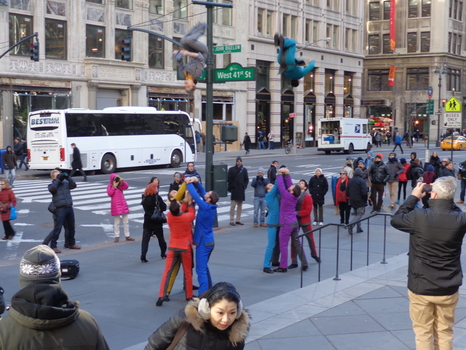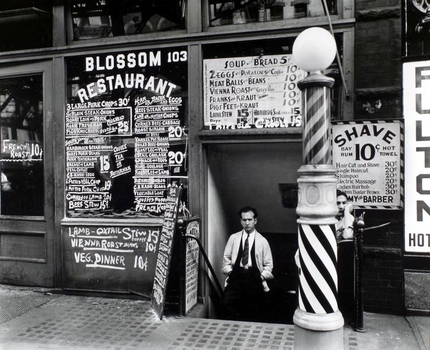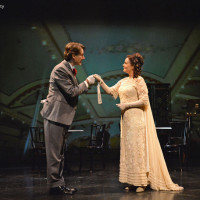Final Analysis, written by Otho Eskin and directed by Ludovica Villar-Hauser, tries too hard to be profound and by doing so exhausts itself. While interesting in its historical dimensions, it skimps on plot, and the dialogue never manages to succeed in captivating us.
The play begins with a projected backdrop of Vienna on the cusp of World War I, ushered in by actor Stephen Bradbury. The effortlessly charming Bradbury serves as narrator to us throughout and as a waiter to the Vienesse sophisticates who visit the coffee house where he works. These regulars will become the characters who we follow over the course of the play, and who gradually reveal themselves to be giants of the twentieth century: Sigmund Freud, the composer Gustav Mahler and his wife Alma, the philosopher Ludwig Wittgenstein, and the political revolutionaries Joseph Stalin and Adolf Hitler.
It’s a powerful set of historical characters, but the writing attempts to spotlight each person and every theme they might conceivably represent, instead of emphasizing a central message or conclusively choosing a protagonist.
I had suspected going in that the play would center around Sigmund Freud, given the title and that his image dominates the playbill cover. The psychoanalyst plays a minor role, prompting other characters to monologue through questions like “How does that make you feel?” and “What do you think it means?” That’s fine—there’s no reason the play has to be about Freud—but it never quite seems to settle on Gustav Mahler, the presumed lead, either. Our attention drifts from character to character, with only chance and peripheral connections between most. The brief encounters between the characters results only in new and grander opportunities for exposition, rarely for furthering plot.
This is significant, because the play has a lot of exposition and precious little plot. It is trying immensely hard to be profound, and at every turn. It comes off like a symphony endeavoring to render every moment a crescendo, and it doesn’t work. Every conversation must be deep and meaningful. We investigate existentialism, racism, gender relations, communism, the plight of bourgeois boredom, Nietzsche, the spiritual nature of art, anti-semitism, love and hate, and more. The author Norman Bishop used to advise his charges to have only one life-changing philosophical statement per novel, and this one act plays attempts to insert one into every scene.
These diatribes rarely come off as conversational, either. The exchange of dialogue between actors has an odd stilted quality to it; a rhythm of pause-and-respond which creates a “your turn, my turn, your turn, my turn” pattern. While I would not expect a play set in Austria to use German accents, the actors do not coordinate their own accents, either. Michael Sattow (Wittgenstein) has a casually West Coast accent, Ezra Barnes (Gustav Mahler) has a clipped, neutral American accent, and Elizabeth Jasicki (Alma Mahler) uses a kind of airy, trans-atlantic voice. Hearing the disparate American accents interact with one another spoils the illusion that we are in Vienna.
The costumes, by Jenny Green, are outstanding, and the actors Ezra Barnes (Gustav Mahler) looks dashing and every inch the Austrian courtier. However his statuesque presence has the side effect of often rendering him plastic during deliveries. Ryan Garbayo, who plays Adolf Hitler as an ominous young man, has a challenging role in portraying the future dictator, but does so with aplomb.
Unfortunately, while there are several promising elements available in the play, they do not come together to establish an engaging production.











